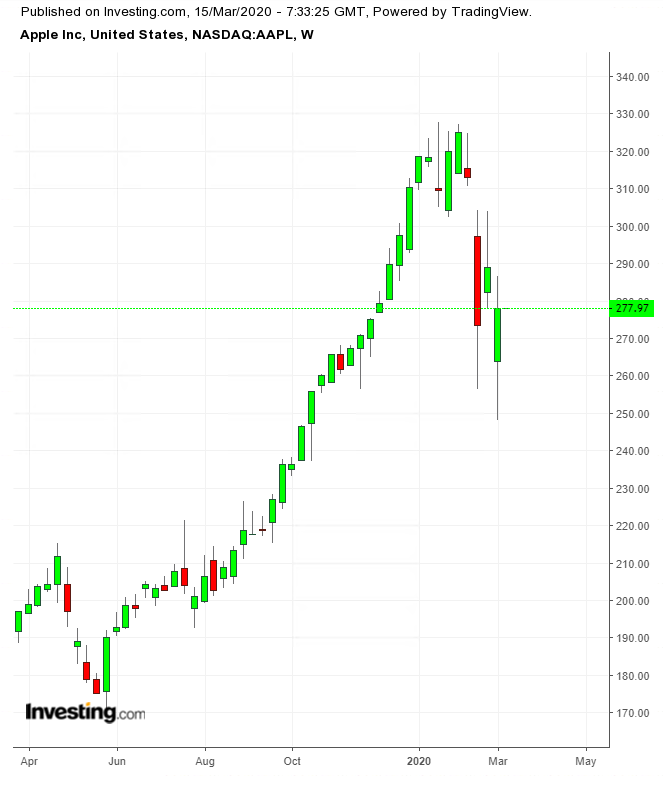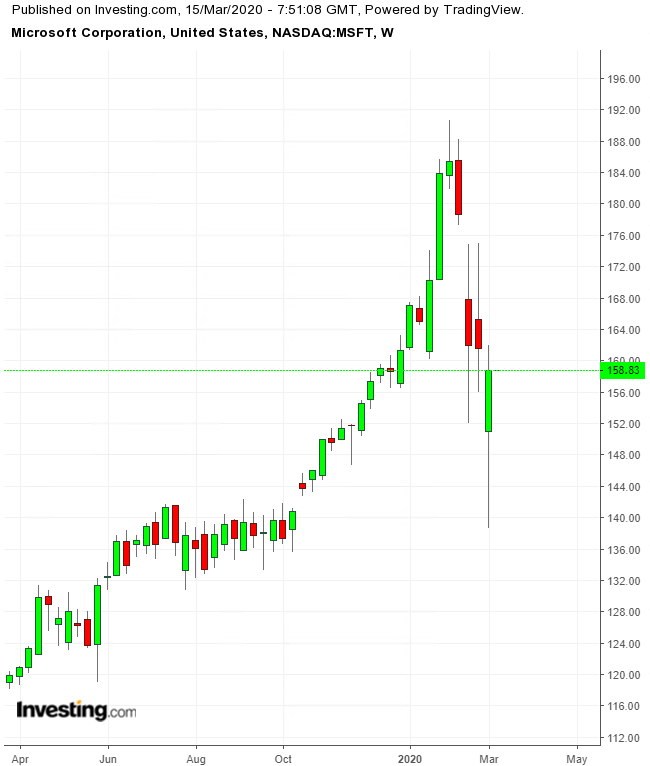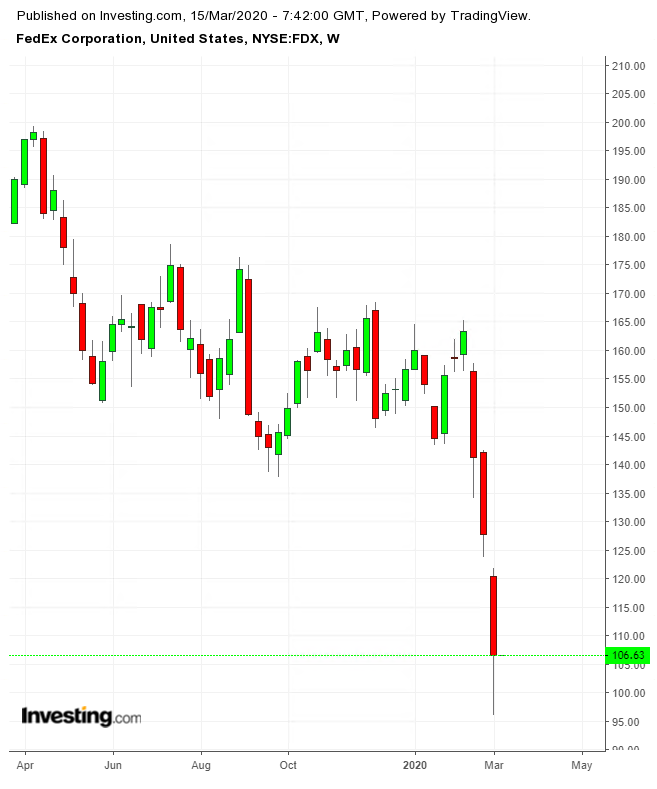Investors are likely to face yet another roller coaster ride next week, after the past week's trade was the most volatile since the Financial Crisis of 2008. Coronavirus, the key driver of all this volatility continues to spread globally, forcing many countries to take extraordinary measures.
Over the weekend, Spain became the second European nation after Italy to lockdown its 46 million citizens as the virus's spread accelerated sharply. The U.S. extended its travel ban for the continent to include Britain and Ireland, in an effort to further control the pandemic.
As markets brace for more bad news, governments globally are trying to stave off the economic fallout by aggressively cutting interest rates and promising help for affected businesses and workers.
At the end of the week, U.S. House Speaker Nancy Pelosi announced that Congress reached an agreement with the White House on a bill which, if approved by the Senate, would offer free coronavirus testing to people with or without insurance, two weeks of paid sick leave and more money for Medicaid among other measures. As a result, Wall Street experienced a relief rally during Friday’s session. This just one day after the Dow Jones Industrial Average suffered its worst trading day since the 1987 “Black Monday” crash.
The Dow rallied 1,985 points, or 9.4%, to 23,185.62 — the largest point gain in the index’s history. While the coronavirus-related uncertainty is going to be the key driving factor for the markets this coming week, here are three mega cap stocks we're focusing on:
1. Apple
Apple (NASDAQ:AAPL) is closing all its retail stores outside Greater China, as part of the iPhone maker’s efforts to slow the spread of the coronavirus to employees and customers.

The Cupertino, CA-based company said Apple stores would be closed until March 27. Hourly workers will continue to be paid, and employees across the company will be allowed to work remotely if their jobs permit it, CEO Tim Cook said in a note on the company’s website.
“The most effective way to minimize risk of the virus’s transmission is to reduce density and maximize social distance.”
The manufacturer of iPhones, iPads, wearables and provider of related services said in February that it doesn’t expect to meet its revenue guidance for the March quarter as work slowdowns and lower smartphone demand in China hurt sales.
Apple shares have fallen more than 15% from their record high in February, hurt by the coronavirus-triggered market crash. However, the stock surged 12% on Friday to close at $277.97.
2. Microsoft
After Bill Gates, co-founder of Microsoft (NASDAQ:MSFT) and currently a member of its board, announced on Friday that he was stepping down, shares of the global technology giant may come under pressure this coming week. Gates, 65, co-founded the company in 1975 and built it into the world’s largest software maker.

He has been devoting more time to his philanthropic activities over the past years and is therefore scaling back his involvement in the Redmond, Washington-based company. Most recently he was serving as an adviser to current Chief Executive Officer Satya Nadella on technology areas including productivity, health software and artificial intelligence.
“Microsoft will always be an important part of my life’s work and I will continue to be engaged with Satya and the technical leadership to help shape the vision and achieve the company’s ambitious goals,” Gates wrote in a blog post on Friday. “I feel more optimistic than ever about the progress the company is making and how it can continue to benefit the world.”
Microsoft shares have shed about 16% of their value since the February high. The stock closed at $158.83 on Friday after jumping 14.2% in a broader market rebound. It was one of the best performing tech sector stocks last year, delivering a 60% return to investors.
3. FedEx
The world’s largest parcel delivery service, FedEx (NYSE:FDX) will report its fiscal 2020, Q3 earnings on Tuesday, March 17, after the market close. On average, analysts are expecting earnings of $1.53 a share on sales of $16.94 billion.

FedEx’s report, which comes almost a month earlier than Q1 2020 numbers for the majority of U.S. companies, is generally closely watched. The delivery business is considered a proxy for the global economy. As such, it can provide early warnings on the economic impact of coronavirus internationally, especially in China.
During its Q2 earnings release in December, FedEx disappointed investors with its lower-than-expected forecast for the current fiscal year. The company expects to earn between $11.50 to $10.25 a share in adjusted earnings for fiscal 2020 which ends in May.
It will likely come in at the low end of the range, since FedEx is facing an earnings slide nearly on par with what it experienced during the 2008 financial crisis. The current ongoing drag on the company has kept FedEx shares under pressure during the past one year.
The stock closed at $106.63 on Friday, after rallying 10% in tandem with the broader market. Even with this rally, the stock is down more than 40% in the past year.
